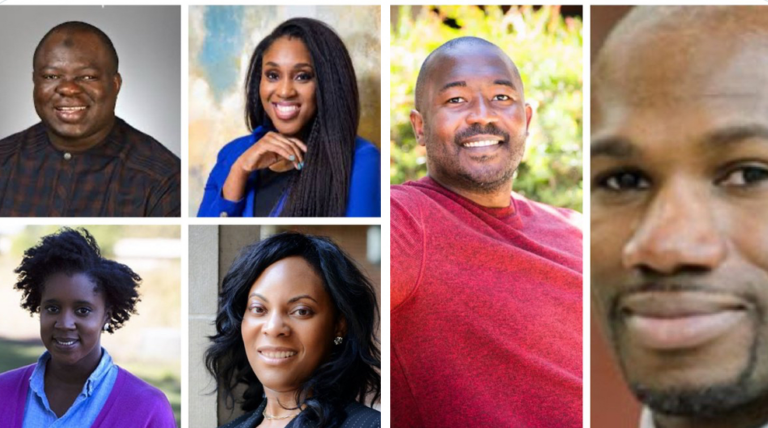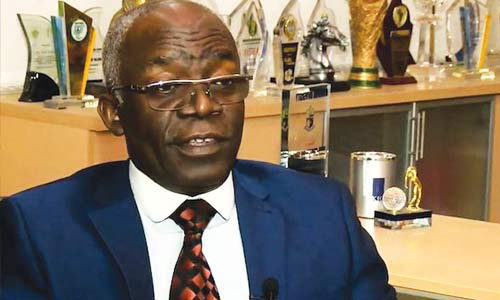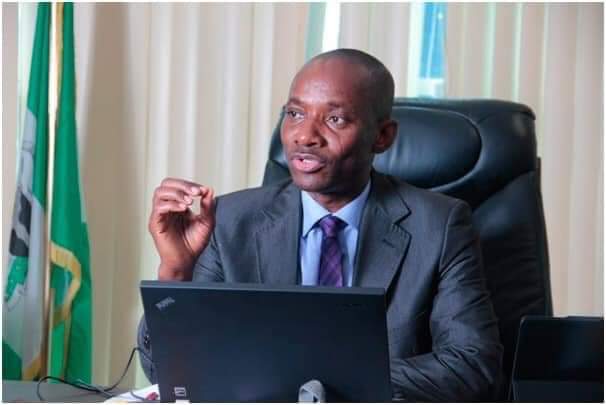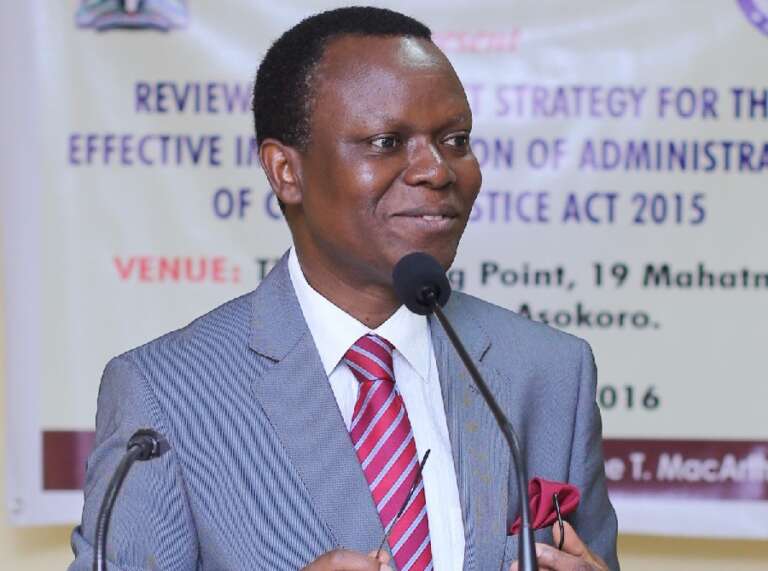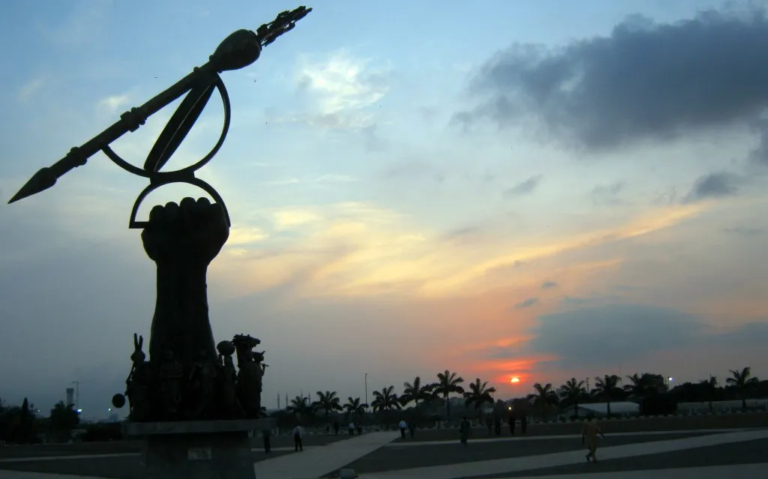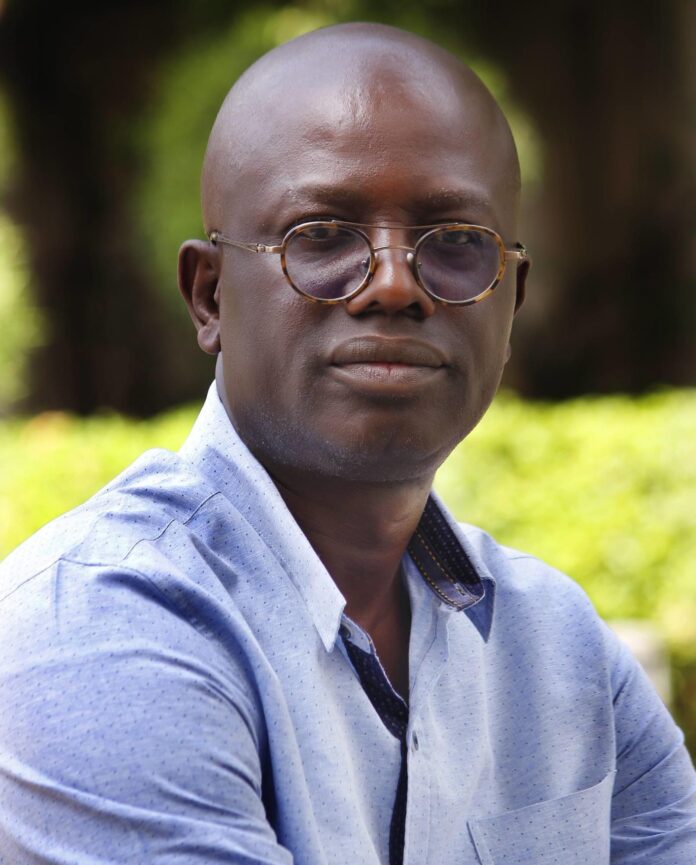By Olusegun Adeniyi
Last weekend, The Nation newspapers published a gripping story of 47-year-old twin brothers who lured a young girl to their hideout in Abeokuta, Ogun State capital, where they murdered and dismembered her body for ritual purposes. Now in the custody of the Ogun State Police Command, one of the twins is already singing. “We usually kill our victims and sell their body parts for money rituals, grill some and grind them into powder for consumption with alcohol or mix them with soap for a magic bath that would bring good fortunes,” he said. “We sell ordinary body parts for N20,000 and hands or limbs for N50,000. We sell a leg for N50,000 while the heart goes for N100,000.’’ Those interested in the gory story can look for the report, but my main concern is that ‘professionals’ in the business of rituals, among other crimes like drug trafficking, banditry, as well as prostitution may soon enjoy official validation.
Going by the new National Bureau of Statistics (NBS) parameters for assessing the Gross Domestic Product (GDP) in Nigeria, contributions of these ‘entrepreneurs’ will not be ignored when rebasing the economy. “If you are into, for instance, drugs, there are some countries where the drug trade drives their economy. It is illegal here because there is no legal backing. Also, prostitution earns income. Some even live better than those in the formal sector,” said Baba Madu, the NBS Head of National Accounts during a sensitization workshop last Thursday in Abuja. “The challenge is the legal backing and how do we gather accurate data? These sectors contribute significantly, but they remain underreported due to their hidden nature.” But despite these challenges, Madu assured Nigerians that those activities deserve to be captured in the new rebased economy, and that’s what the NBS intends to do in the coming exercise.
Let me state upfront that there is nothing wrong with rebasing the economy and Nigeria is indeed long overdue for one. In April 2014, the GDP was rebased by the NBS to propel our economy into first position in Africa and 24th in the world (with Belgium and Poland), overtaking South Africa. Among other contentions at the time, I recall a few people arguing that placing Nollywood above India’s Bollywood was carrying fantasy too far. But notwithstanding some misgivings back then, there was consensus about the credibility of that exercise. More significantly, then NBS Director General, Yemi Kale, also placed a rather instructive caveat on the figures: “While GDP depicts how rich a nation is, this is not necessarily the same as showing how rich individuals in the nation are, due to problem of unequal distribution of wealth. Similarly, growth in GDP is not synonymous with job creation…this is the challenge of non-inclusive growth.”
Now, the current debate is on whether certain activities should be included in the GDP, and I offer background to my concern. According to the NBS 2024 Crime Experience and Security Perception Survey, a staggering sum of N2.2 trillion was paid as ransom to kidnappers between May 2023 and April 2024. Against the background that the 2024 Budget of ‘Renewed Hope’ as proposed by President Bola Tinubu outlined a projected revenue of N18.32 trillion and just about half that amount was realized, according to most reports, the NBS figure meant that within a period of 12 months kidnappers alone took about 25 percent of the federal government revenue for last year. If we extrapolate with the same methodology to calculate the ‘take-home pay’ for prostitutes, ritual killers, Yahoo Plus experts, bandits etc. then we are looking at a super jumbo rebased economy that raises more questions than answers.
Beyond the issue of accuracy is the character of the national economy itself and the implications of adding dubious/criminal activities as components of our GDP. The NBS is citing a self-serving System National Account (SNA) 2008 to bamboozle the people without telling us that most serious countries(including the United States from where we photocopied our presidential system of government) do not compute crime proceeds as part of their GDP. In a December 2019 piece titled, ‘GDP Doesn’t Include Proceeds of Crime. Should It?’ published in the Wall Street Journal (WSJ), Science Bureau Chief, Jo Craven McGinty wrote, “When the U.S. calculates its gross domestic product, it only includes things that are legal. But if the wares of drug dealers, pimps, bookies and other black-market denizens were included, the GDP would expand by more than 1%, according to one estimate.” Proceeds of drug trafficking alone, McGinty added, “would have added $111 billion to U.S. gross domestic product, according to estimate.”
Why does the US leave out illegal activities that fetch humongous amounts of money from its GDP? That question was partly answered by a former American diplomat and national security official, David M. Luna. “As some have underscored, the illegal economy obeys no laws except the law of the strong, the corrupt, and the criminal; impunity, coercion, lawlessness, unrest and violence reign,” argued Luna in 2012, as Director for the Bureau of International Narcotics and Law Enforcement Affair at the Organization for Economic Co-operation and Development (OECD). “From an economic perspective, all these illicit activities divert money from the balance sheets of legitimate businesses and put cash in the hands of criminals, who build larger and larger illicit networks. These networks threaten the stability of governments and the prosperity of our economies.” In societies that have been corrupted by such criminal networks, according to Luna, “market- and state-building become more unattainable, economic growth is stunted, efforts towards development and poverty eradication are stifled, and foreign direct investment is deterred.”
Ordinarily, rebasing the economy of a country should be rooted in certain values. In a nation where the line between right and wrong is increasingly becoming blurred—with many young Nigerians believing there is no correlation between wealth and legitimate work—I fail to see the essence of adding these illicit activities to our GDP. Besides, I believe that the financials from these sources are already captured in some form, either through the formal sector (banks and other money deposit institutions) or the informal sector without making those who engage in them imagine they are legitimate activities. In any case, the NBS can only engage in speculation when it comes to putting figures to these illicit activities and it has admitted as much.
What I find hard to understand is what stands to be achieved by a GDP that only serves to massage the ego of politicians while the broad majority sink deeper into misery and avoidable penury. More importantly, a GDP re-basing exercise that legitimizes criminal and dark economic activities can only license the drift to an immoral nation. At a period when drug trafficking, cyber crimes, prostitution, trade in ritual body parts, ransom for kidnapping, terrorism etc. have compromised the integrity of our nation, legitimising them as components of our GDP would only embolden some of our young people who just want to ‘make it’ by hook or by crook.
Highlighting the benefits of GDP rebasing, the Nigerian Economic Summit Group (NESG) Chief Executive Officer, Tayo Aduloju, said Nigeria’s debt-to-GDP ratio, a critical indicator of fiscal health, dropped from 19% to 11% after the 2014 exercise. “This improved Nigeria’s creditworthiness, making us a more attractive destination for foreign direct investment. Investors are drawn to transparency and growth potential, and rebasing sends a clear message: we understand our economy, and we are open for business,” Aduloju said. “Second, rebasing sharpens policymaking. It provides a detailed map of our economic terrain, enabling governments to identify high-growth sectors for scaling and low-growth sectors that require targeted interventions to drive impactful and balanced development.”
If we adopt the NBS approach, we are not likely to achieve those lofty objectives and we may give ammunition to those who already criminalise our country. By openly admitting that our GDP includes the same illegal activities that are already emblems of shame for our country and have stigmatised otherwise innocent citizens, we may just be validating the social media slang that ‘Nigeria is a crime scene’. Therefore, while the NBS occasional reports on the ‘economic value’ of these criminal activities are okay, adding their ‘contributions’ to the national economy as part of a rebased GDP is not the way to go.
Yes, an elevated GDP is good. But even in George Orwell’s, ‘Animal Farm’, a time came when most animals realised that statistics were being used to make fools of them. In normal circumstances, a responsible government would set as its target the elimination of criminal economic activities as a mark of progress. Converting illegal activities into statistical advantages for the purpose of a phantom GDP showmanship is unconscionable. The NBS should just perish the thought!
Still on Pastor Adeboye and Soun
By Fifelomo Dawodu
Dear Segun,
I agree with your perspective on the leadership lessons in the Tik tok message of Pastor Adeboye in your piece on the Soun of Ogbomosho. Indeed, the dimensions of the clip are several and I have just written about it in a draft personal statement I am putting together for an application for some doctoral research work. Some of the contradictions of interest that I am looking to interrogate are implicated in the clip. I endorse the idea of Pastor Adeboye (rightfully) insisting on speaking to the Soun in Yoruba. But there are several questions to pose from that. Will the successor to the throne of Soun when Oba Ghandi, in ripe old age, goes to join his ancestors speak any Yoruba? Should a ‘born again’ Soun reckon with the powers and principalities of the land to ensure a long peaceful reign? How do we reconcile the phenomena of western educated, urbane/cosmopolitan persons as traditional rulers and custodians of our culture? How many people are left who can transmit messages through the talking drum? Eti melo lo ku to gbo ilu? (How many of us are left with an ear for the message of the talking drum?).
Westernisation has robbed us of our cultural vestiges and left us with generic symbolisms. We celebrate that our traditional rulers have College degrees even where they may be unable to speak the language needed to appease the spirit of the land. How odd that the new Alaafin-elect does not have tribal marks! These are marks of identification, beautification and distinction of lineage and royalty. Should we continue to keep faith in the belief that the oracle picks who would ascend the throne? Or resort to AI for less fallible choices? The answers, I guess, are in the womb of time!
- Mrs Dawodu, a solicitor and graduate student of comparative education, resides in Lagos.
THE BOAT PAINTERS!
(It’s one of those stories on WhatsApp that have been in circulation for years. But no matter how many times it is forwarded, you always find it inspirational. Also, like many things you find on social media, the author is unknown. But the message is profound and speaks to diligence, attention to detail and integrity. It was forwarded to me again on Tuesday by a respected senior citizen and I consider it worthy of sharing, at least for the benefit of those who may not have come across it before.)
A man was hired to paint a boat. With his paint, brushes, and a steady hand, he began coating the boat in a vibrant red, as the owner had requested. As he worked, he noticed a small hole in the hull, barely noticeable to the untrained eye. Without saying a word, he repaired it, considering it part of his job. Once he finished painting, the owner paid him, and the man left, content with his day’s work. The next morning, however, the owner returned, holding a check far more generous than what was owed for the painting. Surprised, the painter asked, “Sir, you’ve already paid me for the paint job. What is this for?” The owner smiled and said, “This isn’t for the painting. It’s for fixing the hole in the boat.” Puzzled, the painter replied, “But that was such a small thing—certainly not worth this amount.”
“My friend, you don’t understand,” the owner began. “When I asked you to paint the boat, I didn’t even remember about the hole myself. After you finished and the paint dried, my children took the boat out on a fishing trip without telling me. I was away, and when I got home, I was horrified to realize they had gone out in a boat with a hole in the hull.” The painter listened intently as the man continued, his voice now thick with emotion. “I was terrified, thinking they might never return. But when they came back safely, I rushed to check the boat and found that you had repaired the hole. You didn’t just fix a boat—you saved my children’s lives. That’s something I can never fully repay.” The painter stood silent, absorbing the weight of the man’s words. The owner added softly, “Sometimes, the smallest gestures can have the greatest impact. What seemed insignificant to you meant the world to me.”
In life, we may unknowingly fix many “holes” for others—offering help, mending hearts, or simply being there when needed. We often don’t realize how much those small actions can mean to someone else. You never know when your quiet kindness might save a life. Keep helping, keep caring, for the world needs more boat painters.
• You can follow me on my X (formerly Twitter) handle, @Olusegunverdict and on www.olusegunadeniyi.com

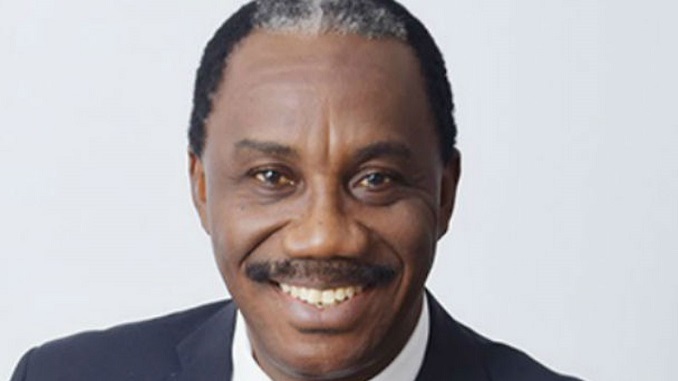
![[Register Now] 2025 NBA AGC Early Bird registration closes in 43 days [Register Now] 2025 NBA AGC Early Bird registration closes in 43 days](https://lawandsocietymagazine.com/wp-content/uploads/2025/01/43-days-left-768x768.jpg)
